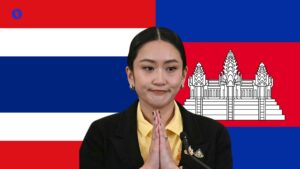Briefly: Brazilian President Luiz Inácio Lula da Silva is back on the world stage, and he’s hosted a summit to prove it. On Tuesday the leaders of 12 South American countries met in Brasilia to try and resuscitate the Union of South American Nations (UNASUR), a bloc which last met nine years ago.
The leaders reportedly discussed the possibility of a currency union, a regional energy market, and deeper security integration.
But unity proved elusive on at least one point: Venezuela.
Stay on top of your world from inside your inbox.
Subscribe for free today and receive way much more insights.
Trusted by 134,000+ subscribers
No spam. No noise. Unsubscribe any time.
- 👐 On the one hand you have leaders like Lula, who welcomed Venezuela’s president to the summit and said the idea of an anti-democratic Venezuela was a “narrative” promoted by the West.
- 🙅 But others like the leader of Chile pushed back, highlighting the serious human rights issues in Venezuela and encouraging fellow leaders not to “bury our head in the sand”.
Intrigue’s take: There’s been a real alphabet soup of Latin American regional blocs over the years: CELAC, ALBA, CASA, SICA, AP, PIM, MERCOSUR, UNASUR… the list goes on, and it’s tempting to respond with yet another acronym: WTF.
Many of these blocs have struggled to gain traction. They fade away, another is born, or an old one (like UNASUR) is revived. And the problem’s not generally the bloc, or its mandate, or even its leadership. It’s more the ideological divisions that run through the region, both within and between countries.
But when Latin America does find a durable path forward, there’s a good chance it can leave an admiring world uttering a new acronym: OMG.
Also worth noting:
- In 2018, Argentina, Brazil, Chile, Colombia, Paraguay and Peru suspended their participation in UNASUR. The President of Colombia announced his country would be rejoining this week.
- Around half a million displaced Venezuelans now live in Chile. Those in Chile for five years or more can vote, even if they’re not citizens.







